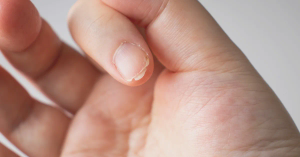Caffeine is one of the most widely consumed psychoactive substances globally, often found in coffee, tea, sodas, and energy drinks. While it can provide a temporary boost in alertness and energy, its effects on child health are a growing concern among parents and health professionals alike. This blog delves into the caffeine effects on children, exploring its impacts while offering essential nutrition tips for parents to ensure their children's well-being.
The Medical Perspective on Caffeine Consumption
Caffeine affects children differently than adults due to their smaller body size and still-developing systems. Research indicates that no amount of caffeine is considered safe for children under 12 years old. For older children and adolescents, moderation is key. The American Academy of Pediatrics recommends that children aged 12 to 18 should limit their intake to no more than 100 mg per day, roughly equivalent to one cup of coffee or two cans of soda.
Short-term Effects
In the short term, caffeine consumption can lead to several immediate health concerns:
- Increased Heart Rate: Caffeine can cause tachycardia (rapid heartbeat), which may be alarming for both children and parents.
- Anxiety and Jitters: Children are particularly sensitive to caffeine's stimulant effects, which can exacerbate anxiety and lead to feelings of nervousness.
- Sleep Disturbances: Caffeine can disrupt sleep patterns, leading to insomnia or poor-quality sleep. This is particularly concerning as adequate sleep is crucial for a child's growth and cognitive development.
- Gastrointestinal Issues: Caffeine may cause stomach upset, nausea, or diarrhea in some children.
Long-term Implications
The long-term implications of caffeine consumption in children are still being studied. However, chronic overconsumption could lead to:
- High Blood Pressure: Studies suggest that excessive caffeine may contribute to hypertension in adolescents.
- Growth Impairment: Some research indicates that high caffeine intake may interfere with calcium absorption, potentially affecting bone health and growth.
- Dependency and Withdrawal: Regular consumption can lead to dependency, where children may experience withdrawal symptoms like headaches and fatigue when they do not consume caffeine.
Physical Effects on Child Health
The physical ramifications of caffeine consumption extend beyond immediate symptoms. Children who regularly consume caffeinated beverages often ingest high amounts of sugar as well. Many popular drinks contain added sugars that exceed the American Heart Association's recommendation of no more than six teaspoons per day for children. This combination can lead to:
- Obesity: Excessive sugar intake contributes significantly to childhood obesity rates.
- Dental Issues: Sugary drinks can lead to cavities and other dental problems.
- Nutritional Deficiencies: High-calorie beverages may replace healthier options like milk or water, leading to deficiencies in essential nutrients.
Psychological and Behavioral Impacts
The psychological and behavioral impacts of caffeine on children are equally important to consider. Research has shown that:
- Anxiety and Mood Swings: Caffeine can exacerbate feelings of anxiety and contribute to mood swings, making it particularly problematic for children who may already be experiencing emotional or behavioral challenges.
- Difficulty Concentrating: Caffeine's stimulant effects can impair a child's ability to focus and concentrate, potentially affecting their academic performance and overall cognitive function.
- Increased Risk of Addiction: Exposure to caffeine during childhood can increase the likelihood of developing addictive behaviors, including the potential for substance abuse later in life.
Nutrition Tips and Alternatives
To mitigate the risks associated with caffeine consumption in children, parents should consider the following nutrition tips and alternatives:
- Encourage water and milk as the primary beverage choices.
- Limit or eliminate the availability of caffeinated drinks, such as soda, energy drinks, and coffee.
- Provide nutrient-dense, whole-food snacks that can help sustain energy levels without the need for caffeine.
- Promote regular physical activity and exercise, which can help regulate energy levels and improve sleep quality.
- Consult with a healthcare professional to develop a personalized plan for managing caffeine intake and addressing any underlying health concerns.
Conclusion
Understanding the impact of caffeine on kids is crucial for promoting child health. The potential medical, physical, and psychological effects underscore the importance of monitoring caffeine intake among children. By implementing thoughtful nutrition tips and fostering healthy habits early on, parents can help mitigate the risks associated with caffeine consumption. Ultimately, ensuring that our children maintain a balanced diet free from excessive stimulants will contribute significantly to their overall well-being and development.








